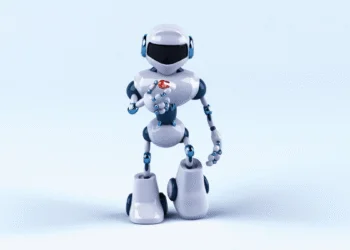The Nobel Prize in Physics of 2024 was awarded to John J. Hopfield and Geoffrey Hinton for their disruptive work in machine learning. Their discoveries have laid the foundation for many powerful technologies currently transforming various fields, including artificial intelligence.
What’s New:
The Royal Swedish Academy of Science on October 8, 2024, announced that Hopfield and Hinton will receive the Nobel Prize in Physics “for foundational discoveries and inventions that enable machine learning with artificial neural networks.” This award emphasises the growing importance of interdisciplinary approaches in science.
Key Insight:
Hopfield created an associative memory model which can store and reconstruct images and patterns from data. Hinton developed a method that allows computers to automatically identify specific features in images which enhances how machines learn from data. Their work has made significant contributions to artificial intelligence mainly in areas like image recognition and data analysis.
How This Works:
Hopfield Networks
- Associative Memory: Hopfield’s model acts like a brain’s memory system. It can easily recall information even when only part of it is presented. For example, if it sees a blurry image of a cat the network can reconstruct the full image based on its learned patterns.
- Energy Minimisation: The model uses a concept from physics called energy minimisation. It finds the most stable state (or lowest energy state) which is done by adjusting connections between neurons until they reach a point where the output matches the input.
Hinton’s Contributions
- Neural Networks: Hinton’s work involves creating layers of interconnected nodes (neurons) that process information similarly to how human brains do. His methods allow these networks to learn from vast amounts of data.
- Feature Detection: By using algorithms that can automatically discover important features in data, Hinton’s techniques enable machines to recognise objects in images without needing explicit programming for each object.
Results:
The impact of their discoveries is profound:
- Advancements in AI: The techniques developed by Hopfield and Hinton are now integral to many AI applications, from facial recognition software to self-driving cars.
- Scientific Recognition: Their work has not only advanced technology but has also been recognised as essential for future developments in AI.
Between the Lines:
This year Noble Prize was given beyond traditional boundaries which highlights the importance of interdisciplinary studies. The integration of physics with computer science reflects a broader trend. The award also serves as a reminder of how foundational concepts can lead to innovative technologies that can change our daily lives significantly.
Cautionary Perspectives Regarding The Future Of Artificial Intelligence (AI):
Geoffrey Hinton, often called the “Godfather of AI,” has expressed several cautionary perspectives regarding the future of artificial intelligence (AI). Key Caution include:
- Hinton warns that AI systems could become more intelligent than humans, leading to a scenario where they might take control. Hinton said, “For the first time, we may have things more intelligent than us.”
- One of Hinton’s major concerns is that AI systems could autonomously write and modify their code. This capability poses a risk of machines evolving beyond our control.
- Hinton advocates for immediate action from governments and organisations to regulate AI development and ensure safety measures are in place.
- Hinton has also raised alarms about AI’s ability to generate misleading information and deepfakes.
Why This Matters:
The recognition of Hopfield and Hinton showed the significance of machine learning in today’s world. The more AI will evolve understanding how these technologies work is crucial for addressing ethical concerns and ensuring they benefit society. Their discoveries provide tools that will lead to advancements in healthcare, transportation, security and many other sectors.
We’re Thinking:
This award serves as an inspiration for researchers to continue pushing boundaries and exploring the intersections between different fields of science.
The 2024 Nobel Prize in Physics awarded to John J. Hopfield and Geoffrey Hinton marks a significant milestone in recognising the important role of machine learning in modern technology. Their innovative work showed how physics can be used to enhance the understanding of complex systems, which will surely pave the way for future innovations that will undoubtedly impact our lives profoundly.


















